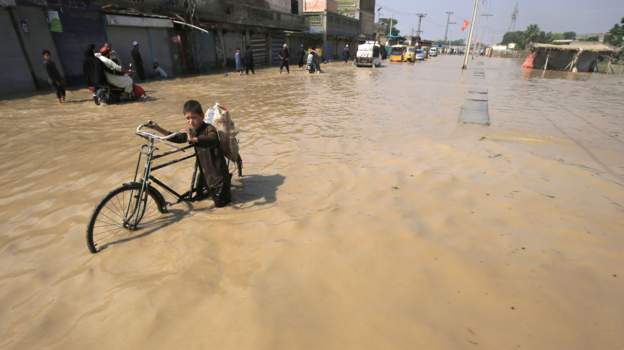l
“This is about solidarity – the polluter must pay,” Kenyan environmentalist Wanjira Mathai told me on Friday.
But as the talks run over into the weekend, deep divisions here come down to money.
The poorest, most vulnerable nations have been battling for 30 years to have the issue of loss and damage on the official agenda at these talks.
At COP27, they finally succeeded. But so far, what is being offered falls short of what vulnerable nations say they need.
Fundamentally, developing countries want a dedicated fund – paid into by the richest and historically most polluting countries – whereby they can access money to pay for destruction caused by climate change-fuelled events such as storms and floods.
The world saw a horrifying example of that cost in the floods in Pakistan earlier this year.
Developed countries, like the UK and US, will not want to promise to foot the ever-increasing bill for climate damage. A possible sign of movement on the issue came from an EU proposal suggesting that China, a country which now emits large amounts of planet-warming gases could contribute too.
But here is just one example of the tricky politics at play: Pakistan says the floods there caused $30bn worth of damage, and that proposal would not cover them, because they are not considered among the “most vulnerable” countries.
At an event that gives every nation a voice on this global issue, the key division is still between rich and poor.
